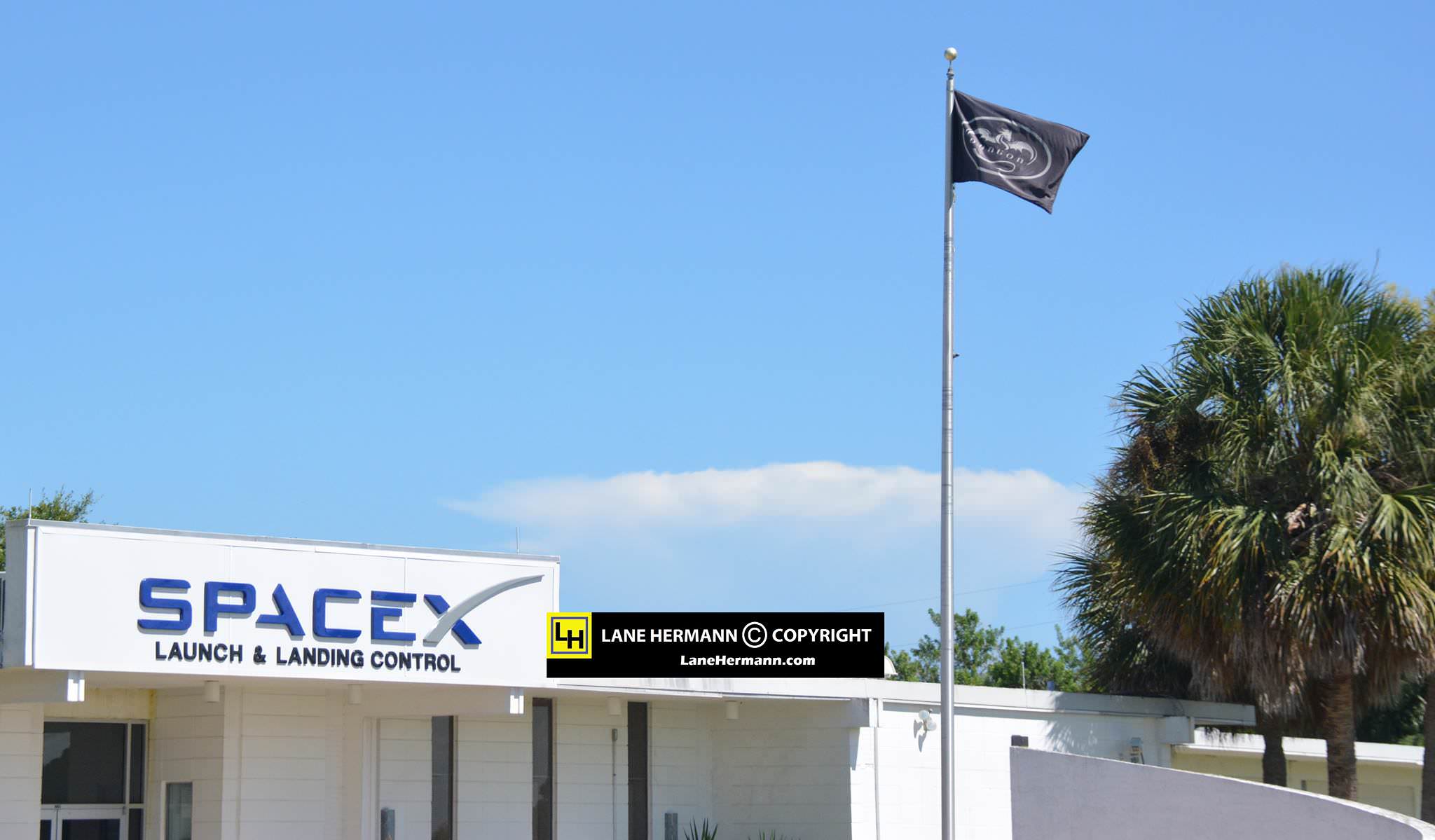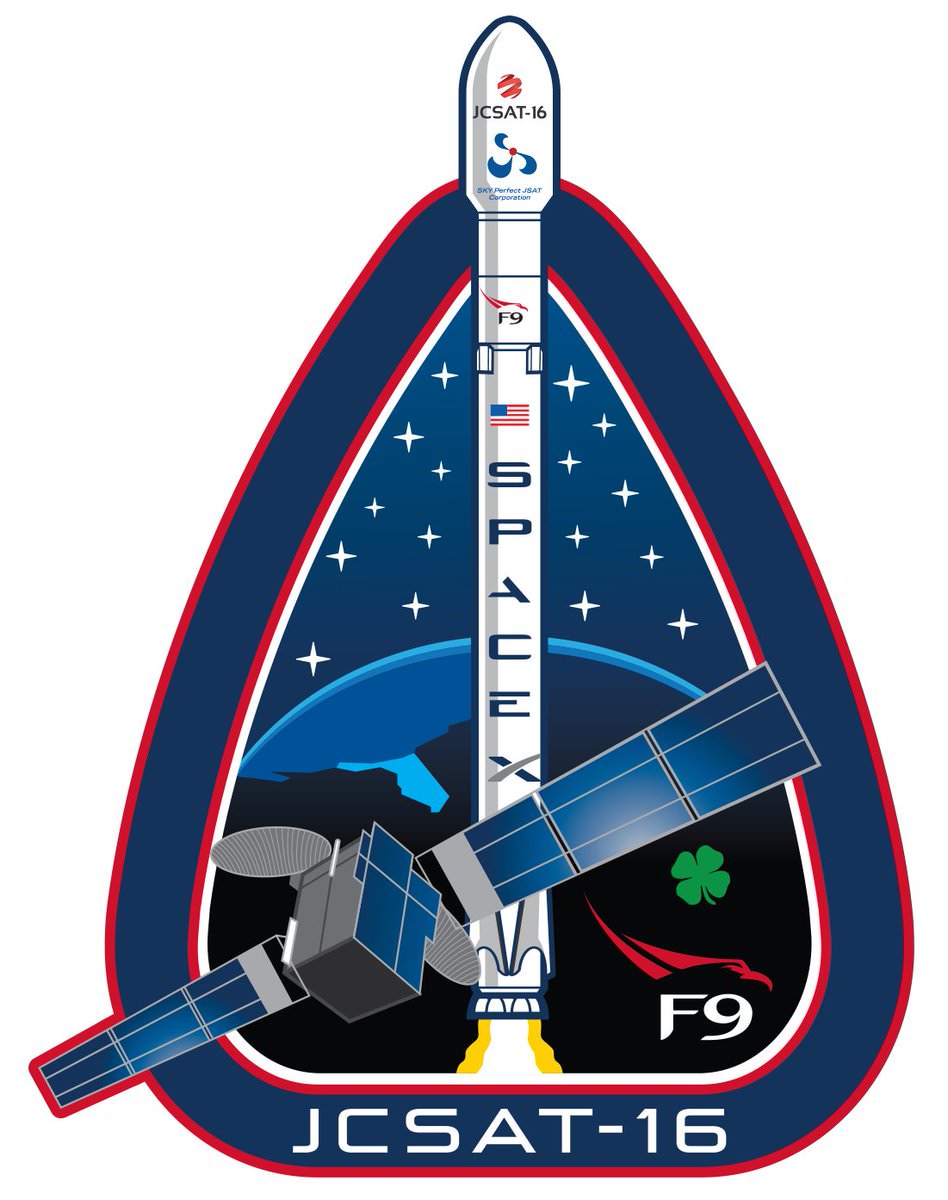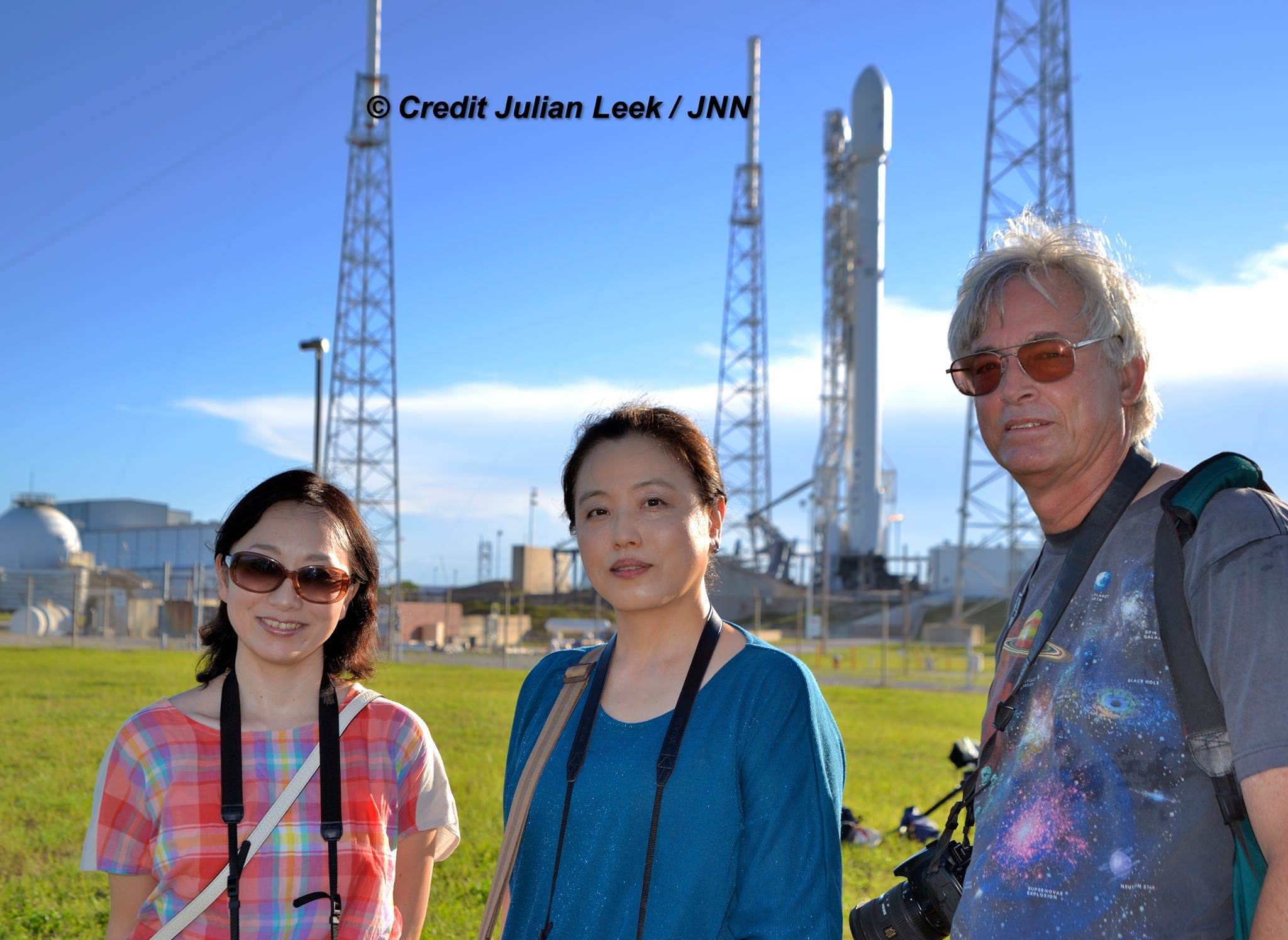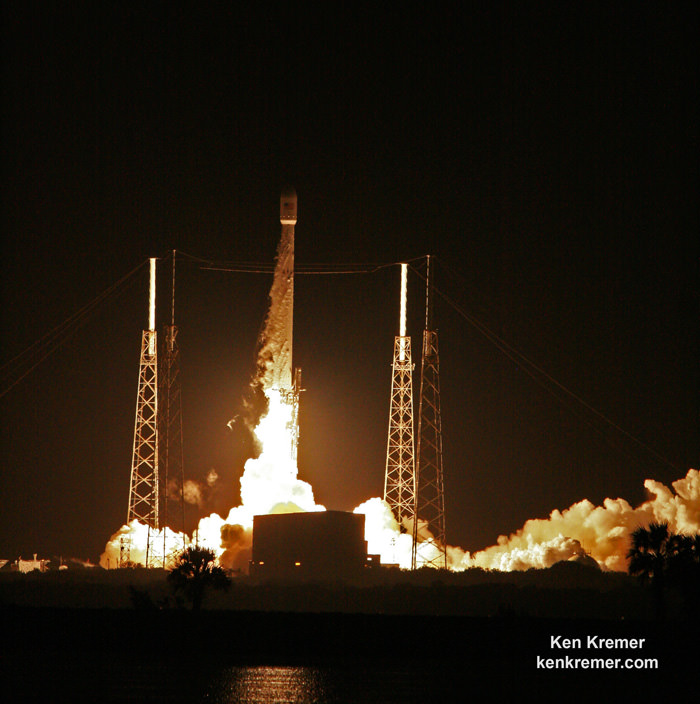
CAPE CANAVERAL AIR FORCE STATION, FL — Shortly after midnight today, Sunday, Aug. 14, and under near pristine Florida Space Coast skies, SpaceX dazzled its commercial customers and space enthusiasts alike worldwide with the twin feats of nailing the nighttime launch of the firm’s Falcon 9 carrying a huge Japanese telecommunications satellite to orbit and accomplishing the nailbiting precision touchdown of the first stage on a miniscule droneship at sea.
A virgin SpaceX Falcon 9 rocket carrying the JCSAT-16 telecom satellite roared to life right on time Sunday morning at 1:26 a.m. from Space Launch Complex 40 on Cape Canaveral Air Force Station in Florida and streaked to orbit.
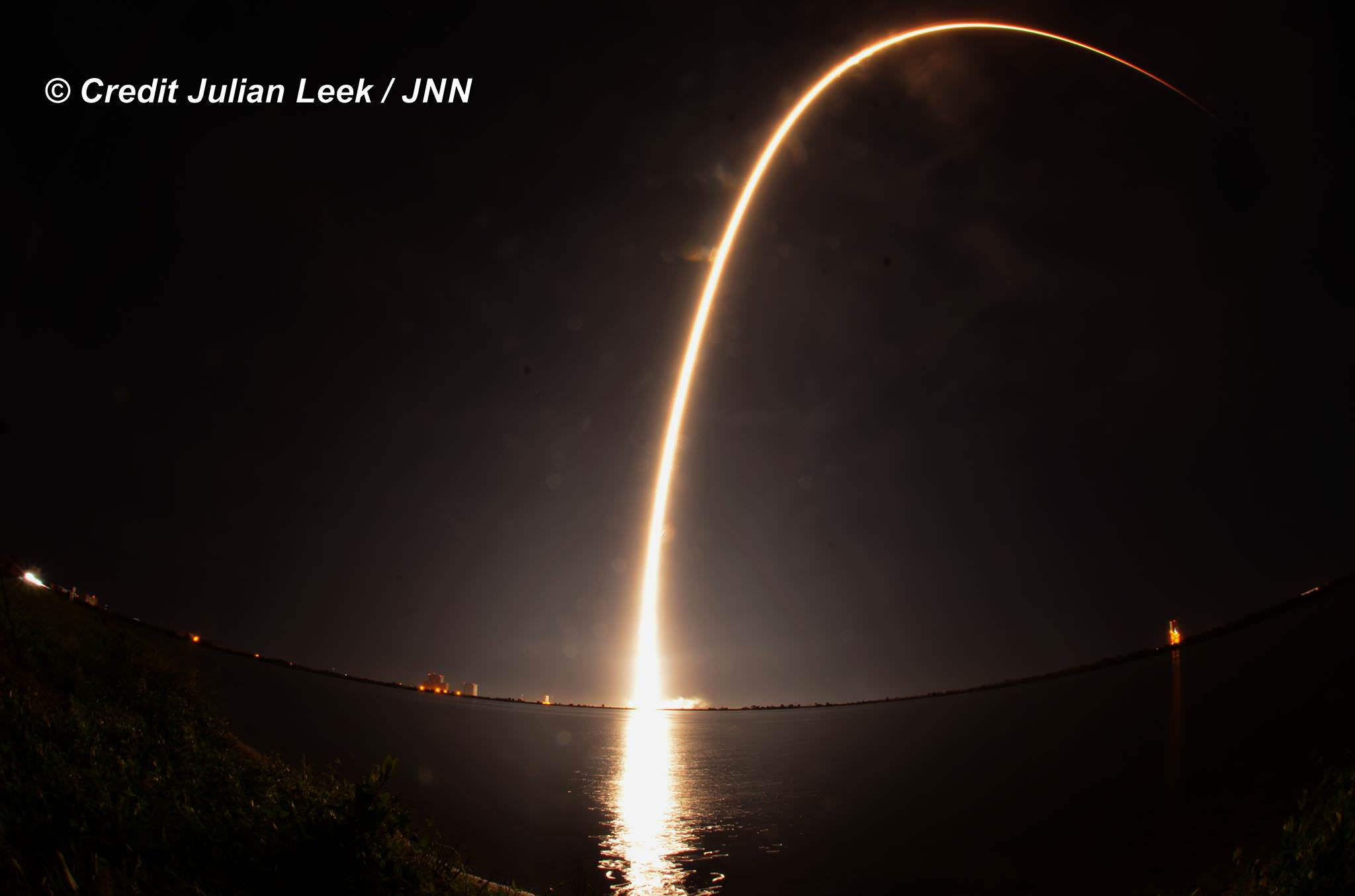
Scarcely some nine minutes later the 15 story tall first stage completed a pinpoint and upright soft landing on a prepositioned ocean going platform after carrying the Japanese satellite to its intended Geostationary Transfer Orbit (GTO).
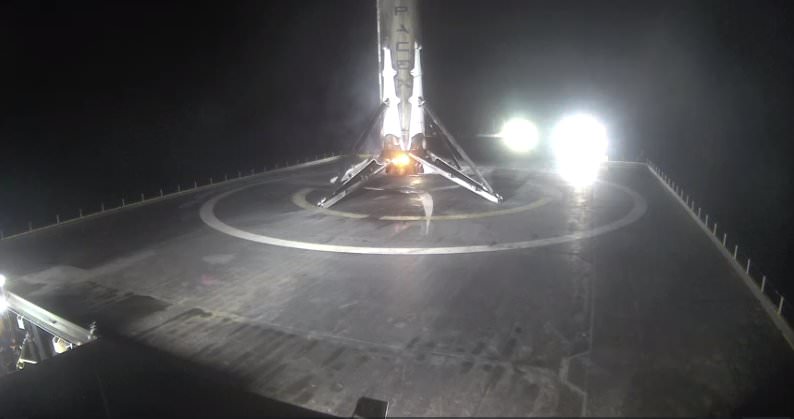
The satellite was launched using the upgraded version of the 229 foot tall Falcon 9 rocket. The first stage generates over 1.71 million pounds of sea level thrust when all nine Merlin 1D engines fire up on the pad.
Check out the expanding gallery of launch photos and videos.
The JCSAT-16 communications satellite was built by Space Systems Loral for Tokyo-based SKY Perfect JSAT Corp. It is equipped Ku-band and Ka-band communications services for customers of SKY Perfect JSAT Corp.
SKY Perfect JSAT Corp. ia a leading satellite operator in the Asia – Pacific region. JCSAT-16 will be positioned 22,300 miles (35,800 kilometers) above the equator.
Sunday’s launch was the second this year for The sextet of intact and upright landings of the recovered 156-foot-tall (47-meter) booster count as stunning successes towards SpaceX founder and CEO Elon Musk’s vision of rocket reusability and radically slashing the cost of sending rockets to space by recovering the boosters and eventually reflying them with new payloads from paying customers.
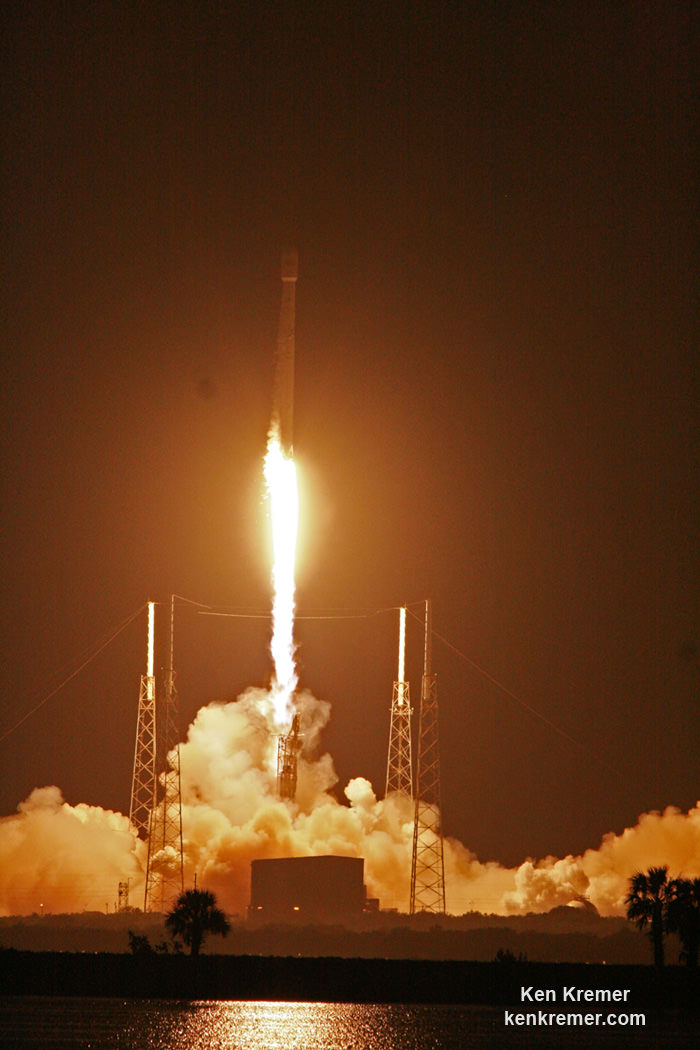
The JCSAT-14 satellite was already successfully launched earlier this year atop a SpaceX Falcon 9 on May 6.
JCSAT-16 will primarily serve as an on orbit back up spare for the company’s existing services, a company spokeswomen told Universe Today at the media launch viewing site.
The U.S. Air Force’s 45th Space Wing supported SpaceX’s Falcon 9 launch of JCSAT-16.
“I am very proud of the entire Space Coast team. Their flawless work made this mission a success,” said Col. Walt Jackim, 45th Space Wing vice commander and mission Launch Decision Authority.
“Assured access to space remains a difficult and challenging endeavor. Today’s launch reflects a superb collaborative effort between commercial launch providers, allied customers, and U.S. Air Force range and safety resources. The 45th Space Wing remains a proud member of the Space Coast team and we look forward to continuing our service as the ‘World’s Premier Gateway to Space.”
With today’s event, SpaceX has now successfully soft landed 6 of the spent first stage boosters over the past eight months following successful rocket delivery launches to orbit for NASA and commercial customers – two on land and four at sea.
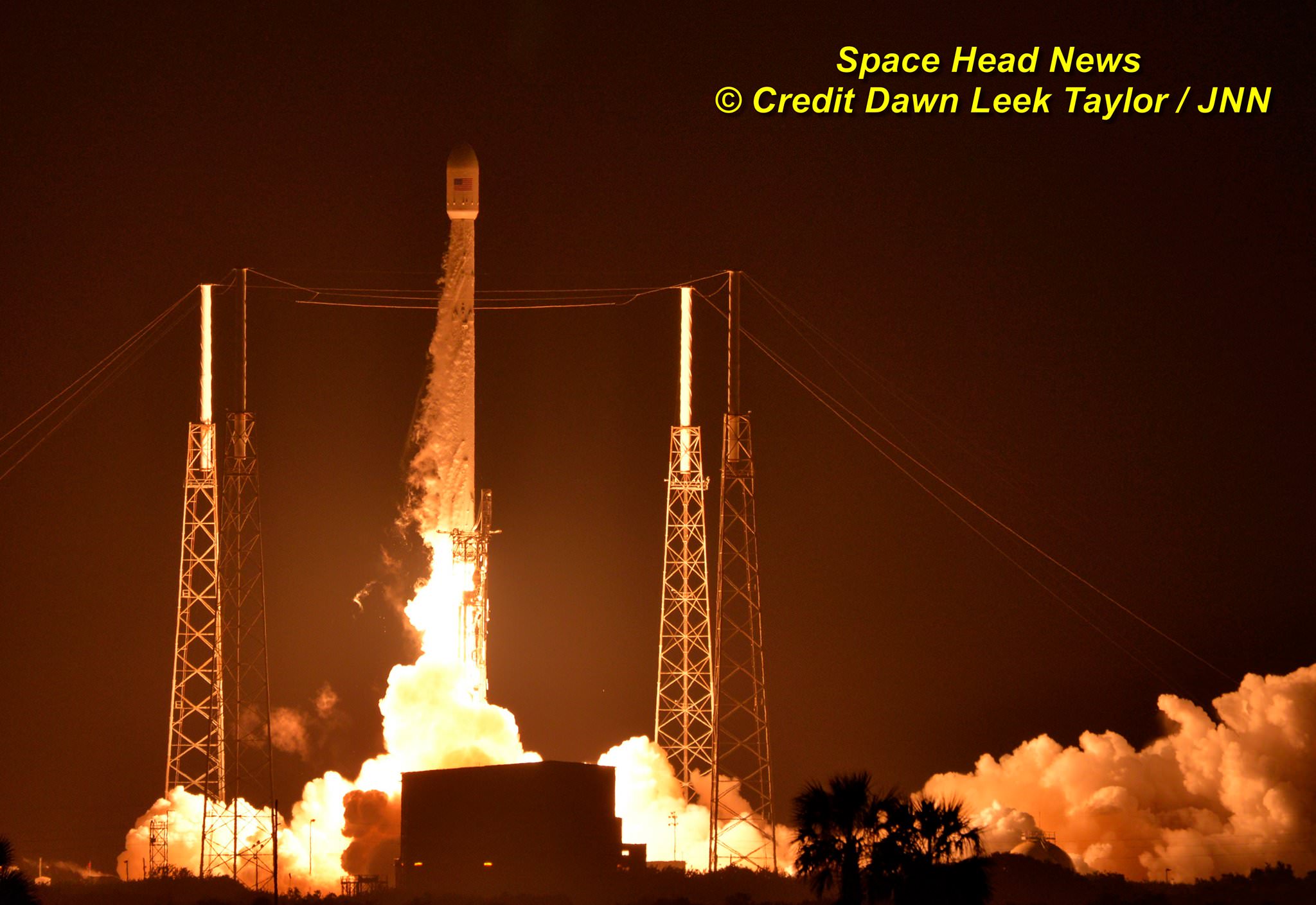
The sextet of intact and upright landings of the recovered 156-foot-tall (47-meter) booster count as stunning successes towards SpaceX founder and CEO Elon Musk’s vision of rocket reusability and radically slashing the cost of sending rockets to space by recovering the boosters and eventually reflying them with new payloads from paying customers.
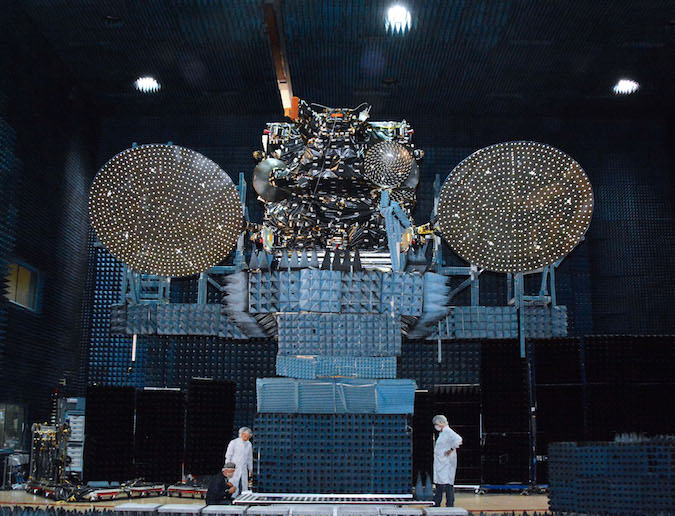
Stay tuned here for Ken’s continuing Earth and planetary science and human spaceflight news.
